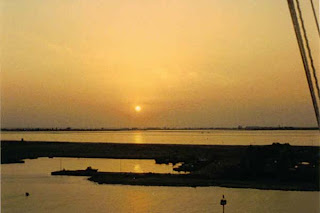Wednesday, December 9, 2009
Monday, November 30, 2009
Marco Polo: Genoa

On returning to
Marco Polo: Persia

Kublai Khan ordered Marco to take his betrothed daughter to
Marco Polo: Acre

Marco was just a seventeen when his father and uncle came back. Marco’s father Niccolo and his brother Maffeo decided to take you Marco with them as they left once again to travel the world. From
Marco Polo: Sumatra

To get to Sumatra Marco and his father and uncle sailed through the
Monday, November 23, 2009
Marco Polo: China

An emperor of Cathay named Kublai Khan lived in Peking, China, and before Marco had ever left Venice, his father and uncle had been to Cathay and met with Kublai Khan many times. Marco’s father and uncle entertained the emperor with stories of Western Europe. When Marco’s father and uncle came back to Peking where Kublai Khan currently lived Marco came along. The emperor became so happy to see Marco (about 15 or 16 at the time) that later on, important positions in the Chinese court were given to Marco. Marco became a trusted friend of Kublai Khan. He lived in China for a couple of years moving around the country and studied the Chinese. Later on he was able to speak the language.
Marco Polo: Persian Gulf

Marco reached the Persian Gulf around 1272 with his father and uncle. They were planning to be head to china on ships, but the ships weren’t in a good enough shape to beat the storms of the Indian Ocean. Marco describes the ships as “being built without the benefit of nail but rather sewn together”. Instead of using ships the Polos traveled by land trough Afghanistan, where they found ruby minds. Marco got a fever while in Afghanistan, so the Polos stay in that region for about a year. Marco says that the almost magical quality of the high altitude and pure air cured his sickness.